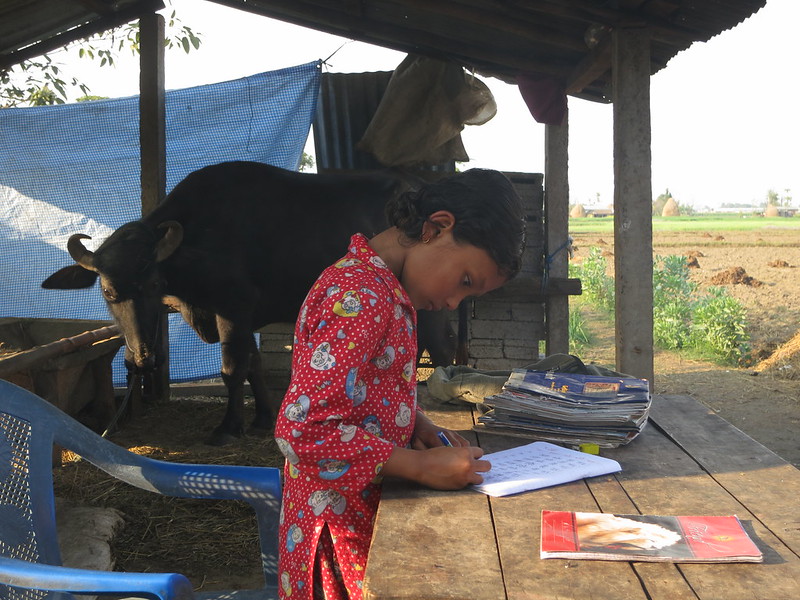Milky Way Program Transforms the Dairy Sector and Poverty
 Nepal faces tough circumstances considering the living standards of the common population. Reported as of February 2024, Nepal currently sees a “less than expected decline in poverty” falling from 25% in 2011 to “just over 20% in 2023.” While it is unfortunate that a country with such warm people faces a tough time, recent poverty alleviation initiatives have helped boost living standards by strategically centring around the Bangladeshi dairy sector. The Milky Way program is a prime example of this. Supplying cattle to households in a Nepalese village has encouraged dairy farming in poverty-stricken village households, even resulting in farmers finally being able to send their children to school.
Nepal faces tough circumstances considering the living standards of the common population. Reported as of February 2024, Nepal currently sees a “less than expected decline in poverty” falling from 25% in 2011 to “just over 20% in 2023.” While it is unfortunate that a country with such warm people faces a tough time, recent poverty alleviation initiatives have helped boost living standards by strategically centring around the Bangladeshi dairy sector. The Milky Way program is a prime example of this. Supplying cattle to households in a Nepalese village has encouraged dairy farming in poverty-stricken village households, even resulting in farmers finally being able to send their children to school.
Milky Way Program
The Milky Way program is supported by Heifer International – a development organization working to end hunger and poverty around the world through the provisions of livestock to supplement dairy farming endeavors – in addition to local and Korean partners to upscale the dairy sector in Nepal.
The initiative supplies high-quality Korean Holstein cattle to households in Nepalese villages to engender better-quality output in the dairy sector. For instance, it supplied 100 cows and eight bulls from Korea to the Kamamalai municipality in the Sindhuli district of Nepal. Farmers received training to help them make the most of these cows and learn to produce milk for money thereby increasing their living standards and income while having the ancillary effect of improving their vocational skillsets.
Bishnu Chopai and Heifer International
Aside from the Milky Way program, the main sponsor – Heifer International – has played a crucial role in improving the quality of life in Nepal. Residing in Phalebas, Nepal, Bishnu recounts the trying days when her husband worked as an expatriate in India, and money was still scarce. She was the primary caretaker for the family during the time and worked on raising their goats to earn more money, but only merely survived on that income. She states “I wished for a time when we could all be together as a family… and we could create a better life for ourselves” until Heifer International supplied their family with cows to raise, alongside training for handling those cows. They recognized dairy farming as a legitimate chance to change the fate of their family, and “transitioned from raising goats to cows.”
Raising cows that Heifer provided proved to be life-changing for Bishnu. Their income increased exponentially, and with that so did their living conditions. It also enabled them to break generational poverty by bestowing a guaranteed better future for their children. Both of their children, aged 12 and 14, are now able to receive an education there in Phalebas, thanks to the newfound income. Bishnu and her husband now operate a full-fledged dairy farm, being able to afford to educate their children and cover health expenses, according to Heifer.
Reinforcing These Initiatives
Initiatives like the Milky Way program in Kamamalai, and the provision of cows in Phalebas, have been instrumental in encouraging the growth of the dairy sector and engendering increased dairy farming interest in struggling households. Considering that the extreme poverty rate could rise from 4.9% to 5.1% in the 2024 fiscal year, it is more important than ever to ensure that the progress seen by the country is not undone.
– Disheta Anand
Disheta is based in Dubai, United Arab Emirates and focuses on Politics for The Borgen Project.
Photo: Flickr
